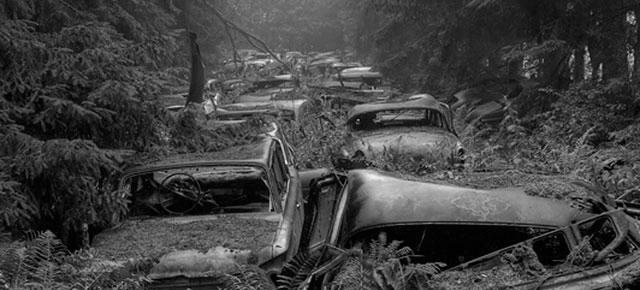
In front of the steamrollers of industrial civilization and progress, one of the last sensible worlds populated by terrifying imagery and enchanted fantasies is disappearing before our eyes: that of the forests. Those that were a fiefdom of the lords who lined the hanged there, or a shelter to escape persecution. Those that represented the darkness where one could abandon one’s hungry offspring or the dense shelter from which to set out on the assault of the existent. Those that harbored mysteries populated by dryads and werewolves or that saw the warship builders and other master forgers come through to strip them en masse. Those that saw in Sherwood daring bandits plundering the rich, in Ariège Demoiselles (*) with soot-covered faces burning and plundering castles, in Courlande of revolutionaries continuing to strike fierce blows against tsarist tyranny, but also witnessing in the Alps or Poland the death by frostbite of migrants driven out by European border guards.
Fundamentally, forests are also ambiguous because of their very etymology, since forest stood for first and foremost the outdoor space not used by villagers-the word savage itself comes from silvaticus, meaning sylvan-before designating vast wooded areas reserved for the nobility and monasteries protected from peasant uses. By a singular inversion of meaning, the word forest, the perilous unknown that Roman civilization could not subjugate, ended up qualifying in a few centuries the territory par excellence of religious and feudal rule, before finally becoming a generic and rather vague term. Continue reading “Silvaticus”
